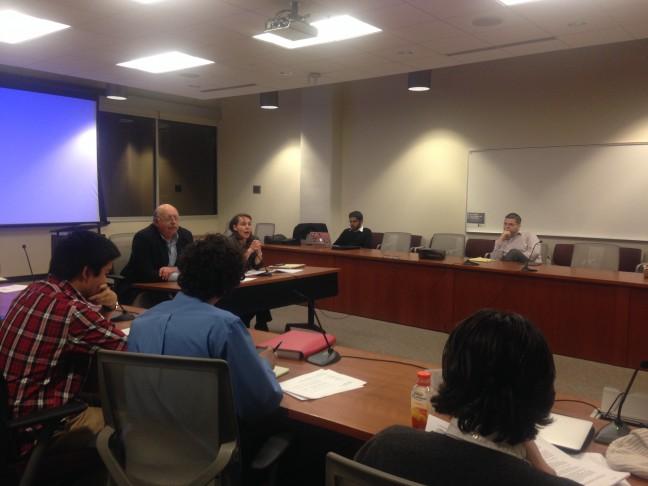The University of Wisconsin’s Student Services Finance Committee heard University Health Services’ 2015-2016 proposed budget of $13,429,171 at a meeting Monday.
UHS provides medical, mental and occupational health services to students and improves the health of campus through prevention and public health.
UHS’s proposed 2015-16 total expenses are $15,455,146 which puts them at a net loss of $2,025,975.
UHS is funded through student segregated fees, general program revenue, fee for service and grant funding. Student segregated fees pay for 86.2 percent of its funding, according to UHS executive director Sarah Van Orman.
Fifty percent of the funding provides medical services, 30 percent provides mental health services, 12 percent provides prevention services and 10 percent provides environmental and occupational health services, Van Orman said.
In 2008, UHS moved to their current East Campus Mall location and increased segregated fees by 3.2 percent. In 2009, segregated fees increased another 6.1 percent to offset costs and sustain UHS services, Arnold Jennerman, UHS director of administrative services, said.
The past three budget cycles UHS has not asked for a segregated fee increase and this year there is a 5 percent decrease in segregated fees, Jennerman said.
UHS receives $1 million in support from UW to fund mental health services, but due to budget cuts there will be a 6 percent reduction in this funding, Jennerman said. A 6 percent reduction is relatively good compared to what other organizations are going through, he said.
UHS currently has $8,361,020 in cash reserves. UW is asking UHS to bring its reserves down at a “fairly rapid pace,” Jennerman said. In order to spend their reserves, they are decreasing segregated fee revenue and spending their cash reserves, he said.
“UHS received this extra money from students because segregated fees were too high,” Jennerman said. “We want to give that back to the students that paid it while they’re still here. It should be used for their health care.”
UHS’s proposed budget includes a handheld ultrasound, a part time athletic trainer, a full time violence prevention specialist and a full time suicide prevention specialist. It also has $85,000 built in for the first annual campus sexual violence climate service.
SSFC Chair Devon Maier said because UHS has a large cash reserve built up and the Recreational Sports budget has a deficit, there have been suggestions that 2 percent of the 5 percent segregated fee decrease will go the the Rec Sports plan.
The UHS budget decision will be Thursday.
SSFC also initiated four new members, Rep. Ariela Rivkin, Rep. Angelito Tenorio, Rep. Colin Barushok and Rep. Grace Bolt.


